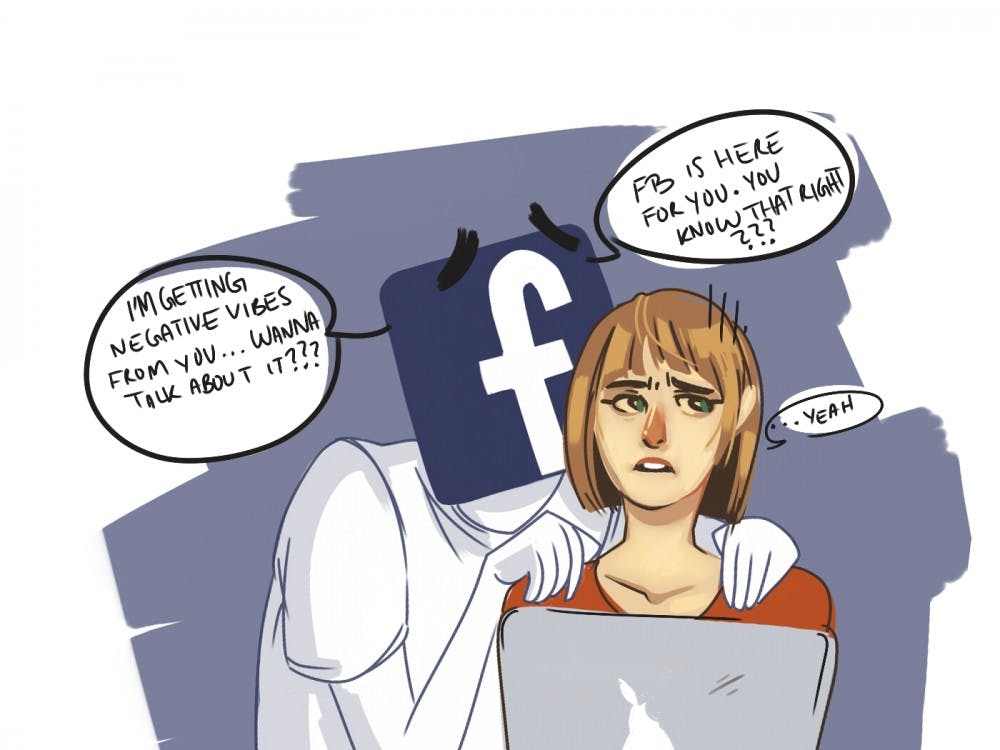Depression is scary. And suicide, the far too frequent result of untreated depression, is even scarier.
Recently, as detailed in an article by the Center for American Progress-funded ThinkProgress blog, Facebook has attempted to step in and help with what many consider an epidemic.
Suicide is a huge issue, with about 41,000 Americans dying from it annually. Suicide is the second leading cause of death among those ages 10-24 and the third leading cause among college-age ?students.
Almost 30 percent of all military ?veterans have considered suicide.
So, one would think, a social media empire taking steps to help address a problem many people think it contributes to would be a good thing, right?
Well, maybe not so much.
Facebook has undertaken an effort to prevent suicide among its users by allowing friends to “report” posts they believe to be a cry for help.
Facebook then analyzes the post in question, determines whether it is a legitimate concern and sends the user in-crisis resources and a suicide prevention hotline.
At face value, such a measure appears to be a great opportunity to reach out to those in need.
It is a way for people to get those suffering from depression and suicidal thoughts the help they need in a forum they might feel comfortable with.
However, upon deeper analysis, the Editorial Board feels such a program might set a dangerous ?precedent.
Depression is an illness often characterized by intense feelings of hopelessness and isolation, and mental health experts agree that a program like Facebook’s could never replace the value of face-to-face interaction with someone suffering from suicidal thoughts.
The danger in this program, thus, is that it often puts the onus of getting help and treatment in the hands of the person suffering, while further distancing them from those closest to them.
Those who suffer from depression are often seeking people to reach out to for help.
And the best way to help someone in crisis is to simply show them you are there for them, you care about them and that you want to help them get the treatment you need.
It is a myth that asking someone about suicide or depression will only put thoughts in their head.
Instead, you need to ask them about it. However, ceding that effort to an expert sitting behind a computer screen only perpetuates an idea that “Well, since this isn’t my area of expertise, I shouldn’t get involved. Let’s just leave it to someone else.”
Though the experts certainly need to be a part of the conversation, true prevention starts with education — not only of those suffering but of everyone.
We need a society more aware of the truths of mental illness and more ?willing to look beyond its stigmas.
An app such as this might be helpful if used carefully, but without properly educating people, it only reinforces these stigmas.




